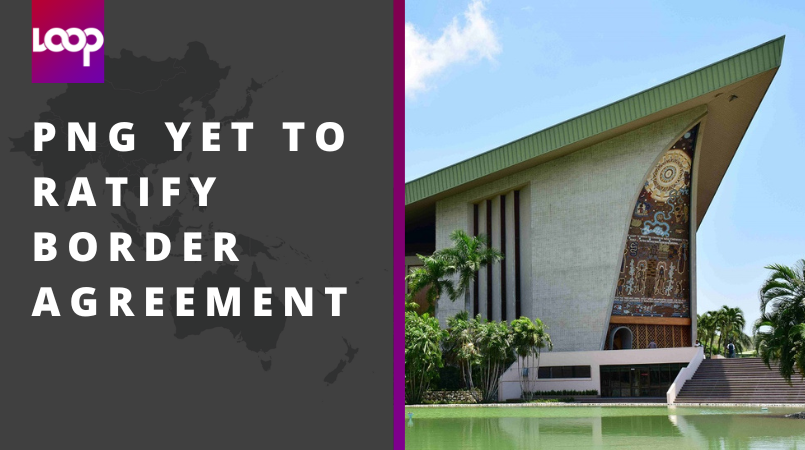
Foreign Affairs Minister, Justin Tkatchenko has presented a policy statement in Parliament on the Basic Border Agreement between Papua New Guinea and the Republic of Indonesia, initially entered into in 1983 and subject to review after every ten years.
Since its inception in 1983, the Agreement has undergone three reviews, the first review was undertaken in 1993, the second one in 2003 and the third was undertaken in 2013, after which Indonesia has formally ratified the 2013 revised Agreement whilst PNG is yet to do so.
This agreement is now up for review but before that takes place, PNG must ratify the agreement and thereafter have it subjected for review by both the two contracting parties.
Minister Tkatchenko clarified that the Basic Border Agreement between PNG and Indonesia is a very important border management framework that governs all borders issues, including the management and administration of the land border between PNG and Indonesia.
“This agreement sets out regulations that guide the border management agencies of our two countries in the administration and development of the 800 kilometer land border between the two countries.
“It defines the border areas, sets out the avenue in which the officials and leaders of both countries can deal with issues relating to the border and the areas adjacent and the people within a certain prescribed corridor.”
The intent of the Basic Border Agreement is to foster cooperation, good will and understanding between Papua New Guinea and the Republic of Indonesia in the administration of the land border to the mutual benefit of both the countries.
The Agreement entails cooperation between the respective Governments of Papua New Guinea and the Republic of Indonesia in the administration and development of the border area for mutual benefit and to also mutually recognize and respect the traditional rights and customs of the people living in the border areas.
Both countries have practically benefitted immensely from this agreement.
Tkatchenko added that it sets the regulations and the guidelines towards managing issues and developments relating to the land border.
“It helps manage tension and regulates activities of people living in and along the border and their issues thereto.”
He pointed out that the Basic Border Agreement further provides an avenue for the two countries to effectively and efficiently exchange information and develop policies and guidelines to counter external challenges as well as it affects their cross border jurisdictions.
“Importantly, the Agreement provides for the recognition of and respect for the rights of the indigenous people living along the border areas, including ensuring consultation between the parties (PNG & Indonesia) to make necessary arrangements for the survey and demarcation of the boundary and mapping of the area through mutually agreed method.”
Under the Agreement, apart from generic information, both countries can also request from each other qualified security and intelligence information on illegal activities that threaten the peace and good standing of the border and its people straddled alone it on both sides of the divide and seek training and other assistance from each other to effectively and efficiently safe guard the border for their mutual benefit.
The Republic of Indonesia has formally ratified the Basic Border Agreement in 2013 soon after it was signed.
Papua New Guinea however, has not formally ratified the said agreement in spite of an NEC directive to do so through NEC Decision No: 283/2015 dated 1st October 2015.
Tkatchenko stressed that it is now more than ever urgent for this Parliament to ratify this Agreement as this year (2023) will be the revision year for this agreement.
“I therefore, through you Mr. Speaker, present this agreement to Parliament to ratify.”
